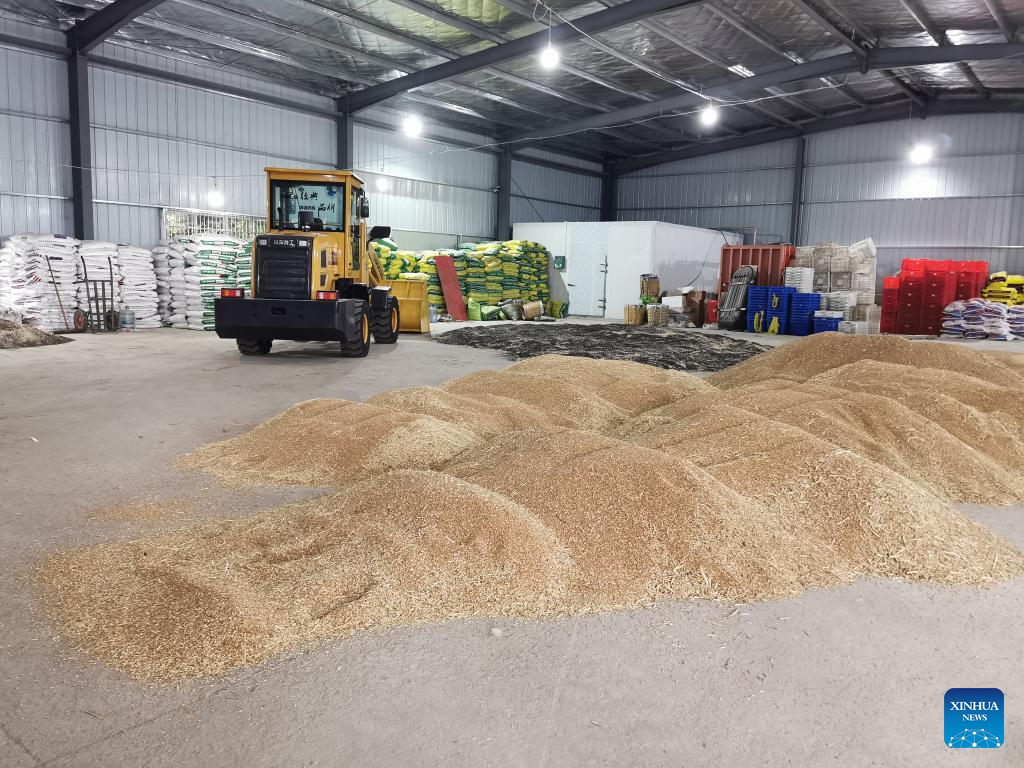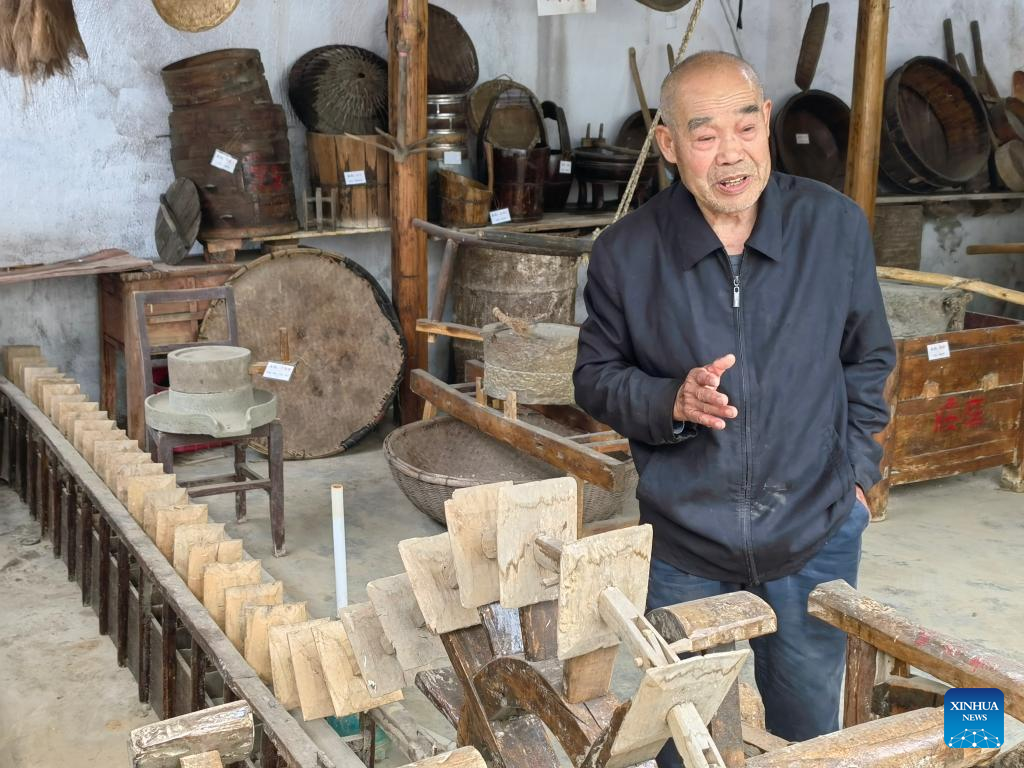
Photo taken on May 19, 2022 shows harvested wheat and rapeseed at a storehouse of a cooperative in Tianmen City, central China's Hubei Province. (Xinhua/Yue Wenwan)
by Xinhua writers Wang Tianyu and Yue Wenwan
WUHAN, June 1 (Xinhua) -- After tilling his tomato and cucumber garden at the doorstep every morning, Yang Cungui walks hundreds of meters to his private museum and unlocks it. It is a farmers' museum that is open to the public free of charge.
Nine years ago, the 79-year-old farmer from Yuxin Township of Tianmen City in central China's Hubei Province devoted everything he had to renovate the family's ancestral home, turning it into a small folk museum.
Covering an area of over 200 square meters, the museum exhibits thousands of production and daily-use utensils that farmers have used since the 1930s. One of the rooms in the museum displays a row of stone tablets featuring the brief history of local farmers' life engraved with over 10,000 Chinese characters, written by Yang's son.
"In the recent decade, an increasing number of farmers have moved into new houses, and many of them have discarded the obsolete tools that were previously indispensable to survival," said Yang, explaining his inspiration behind collecting and displaying these items to document the history and preserve memories.
Yang's endeavor toward collecting these farming tools began in 2013. He posted notices to buy such tools on his door and frequently traveled to neighboring villages looking for them in his spare time. He received the support of local villagers, and even people from the provinces of Guangdong, Henan and Heilongjiang sent him old things like the food coupons of the 1970s and silver coins of the 1930s.
"These antique items reflect the wisdom of our predecessors and embody the development and changes of the countryside, but many young people don't know them. They are worthy of being preserved," Yang added.
Numerous visitors have seen Yang's collections, and whenever he shows them to someone, his eyes light up with joy and excitement.
"This is a stone mill, which was used to grind rice, wheat and soybeans into powder or pulp. After China's reform and opening up in 1978, people could buy cheap tofu and soybean milk in stores, so fewer people used such tools then," Yang said.
"This is a manual plow that people used in the 1990s, which is also my favorite collection," said the curator. "Hold its handle with both hands and drag it in the field, then you can turn over the soil and loosen it," Yang said, adding that he has been using it until today as his fields are small and scattered, making it difficult to cultivate using machines.
"But in the nearby large fields, it's common to use machines to sow seeds and spray insecticide with drones. Technology has brought earth-shaking changes to the countryside," Yang said.
Not far away from Yang's village resides Xu Dabin who is in charge of a cooperative. Xu has a farming land of over 500 mu (about 33 hectares), planting grain and cash crops. He has bought different mechanical equipment for the cooperative, including a forklift, vacuum precooler and ice bank.
"These machines have saved us a lot of time. Five to six years ago, it took at least one week to plow, apply fertilizer and sow seeds in a 40-mu field, but now we get all these things done within eight hours with the help of machines," Xu said.
Yang also buys new machines from time to time. Last year, he added a solar water heater, two electric water heaters and a water dispenser to his two-story building. He said he can now drink clean water or use hot water anytime and anywhere.
Yang said nearly 2,000 tourists have visited his museum to date. "I will always keep the museum open and continue collecting various objects to chronicle the changes in farmers' lives more comprehensively," he said. ■

Yang Cungui explains how to use a waterwheel at a folk museum in Yuxin Township of Tianmen, central China's Hubei Province, May 19, 2022.(Xinhua/Wang Tianyu)



